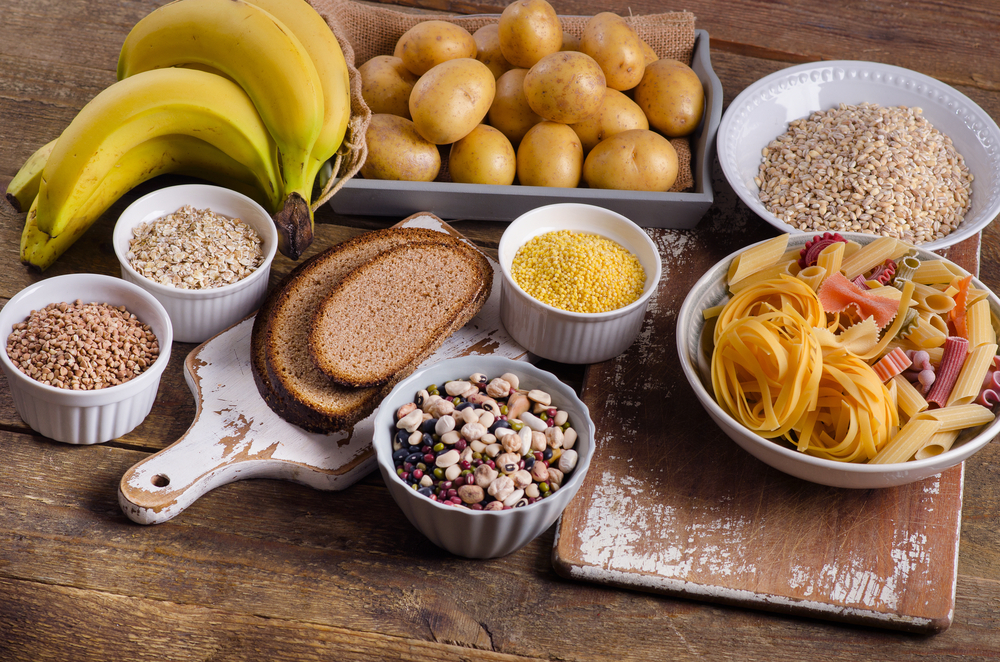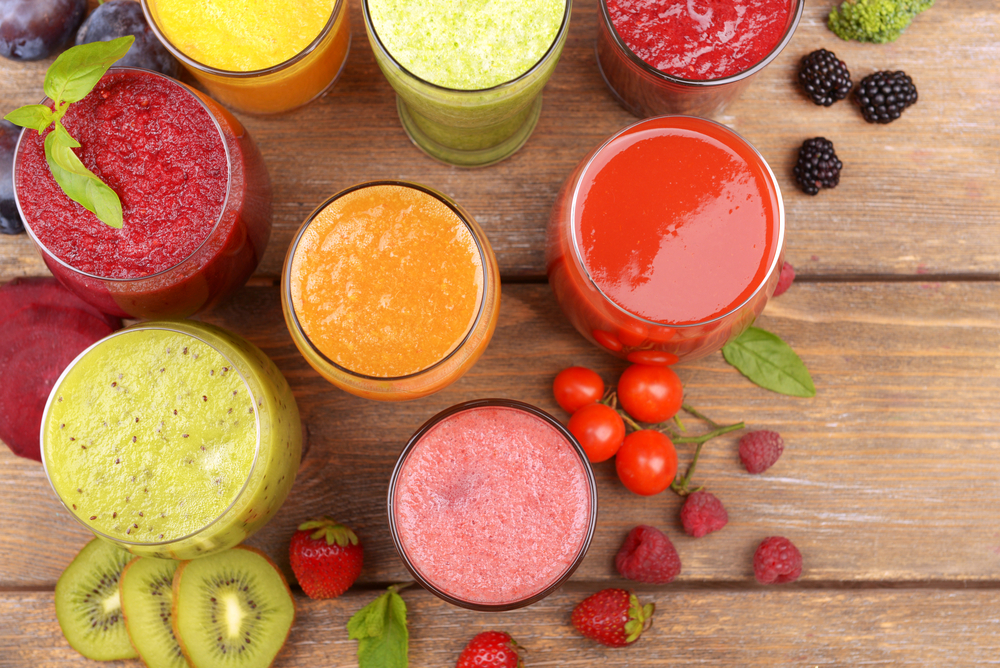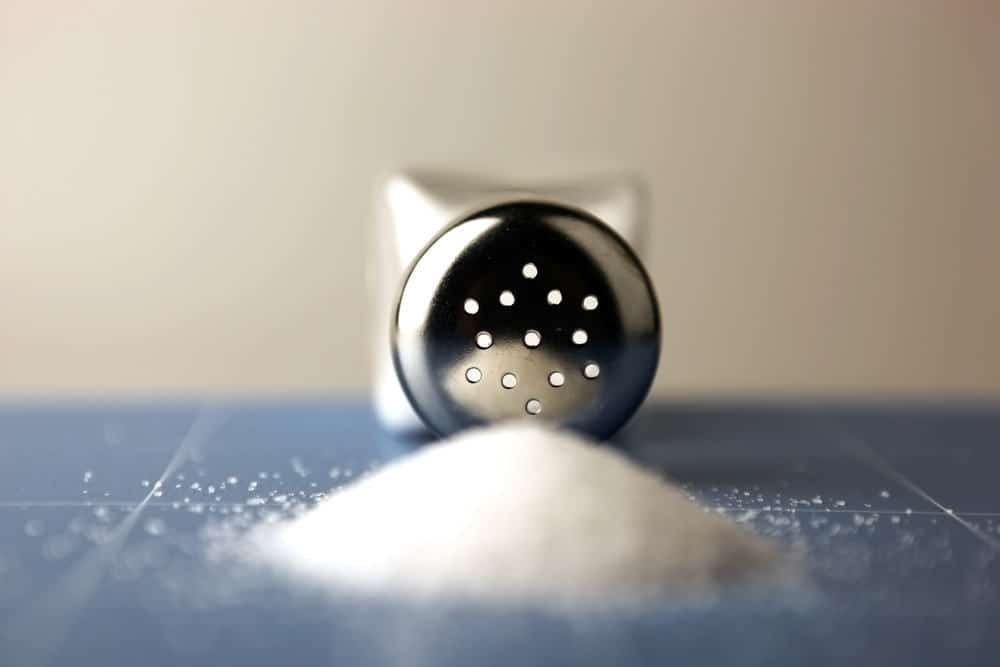Contents:
- Medical Video: A Sample Ketogenic Diet Meal Plan
- Benefits of breakfast for diabetics
- 8 mistakes at breakfast that diabetics should avoid
Medical Video: A Sample Ketogenic Diet Meal Plan
Breakfast aka breakfast has been known to bring many benefits. However, mistakes at breakfast that we often do not realize actually make breakfast does not provide optimal benefits.
Breakfast is one of the keys to undergoing a good day and claimed to be a healthy lifestyle. Skipping breakfast time can bring some bad effects to the body, such as feeling weak, lacking enthusiasm, and even feeling dizzy.
For diabetics, the role of breakfast may be more important than normal people. This activity can be one of the extra energy and added sugar for you after a night of not getting any intake. Then, how about a good breakfast so you really get the benefits? What are the mistakes at breakfast, which we often do and should be avoided?
Benefits of breakfast for diabetics
For a person with diabetes, eating breakfast is believed to bring many benefits. Unfortunately, we sometimes make mistakes at breakfast so we don't feel the benefits. Many also missed this activity because of other activities that were considered more urgent. Moreover, when you also experience being overweight, skipping breakfast is considered as one of the solutions to losing weight.
Skipping breakfast because of fear of increasing body weight is wrong understanding. In one study, as reported by the Diabetes Self Management website, an overweight woman who skipped breakfast had higher amounts of insulin and blood sugar after lunch, compared with those who ate breakfast in the morning. Instead of losing weight, you have the potential to bring other losses.
In fact, in another study conducted in men, those who skipped breakfast time were 21 percent more likely to trigger diabetes than those who regularly had breakfast.
Breakfast for diabetics (and those who don't have diabetes) is one way to refill glucose that is lost when you sleep. During sleep, your body does not get food or drink for several hours. This results in your stomach being empty when you wake up on the morning. This condition can potentially bring you the risk of hypoglycemia.
Some of the benefits that you can get from breakfast are:
- Decreasing your weight becomes easier
- Has a low level of bad cholesterol
- The body becomes fitter
- Can concentrate better
- Have a good mood
Eating breakfast can help you, both those who have diabetes and those who don't have diabetes, in keeping blood sugar levels stable. Especially if you need to take diabetes medications in the morning or inject insulin.
8 mistakes at breakfast that diabetics should avoid
Osama Hamdy, Chair of the Clinical Obesity Program Medical at Joslin Diabetes Center, the United States recommends balancing the carbohydrates that come with healthy proteins and fats in your breakfast. Breakfast is important, but paying attention to the nutritional balance you eat is far more important. Here are some mistakes at breakfast that diabetics should avoid.
1. There is no protein
As an Indonesian, he hasn't eaten his name if he hasn't touched carbohydrates, including breakfast. You might only be able to eat breakfast or just french fries. This is one mistake at breakfast that is sometimes done.
Carbohydrates are known as nutrients that can raise blood sugar levels quickly and it is also found in potatoes or bread. Without protein, the breakdown of carbohydrates runs faster, so that increased blood sugar levels also occur more quickly.
Combining carbohydrates and protein for breakfast can make the food you eat more slowly digested and converted to glucose, so that blood sugar levels will not increase rapidly. Be sure to always include protein in your breakfast menu. According to O’Connor, head of diabetes consultant at the endocrinology center of Mercy Medical Center, Baltimore, USA, protein requirements for the morning range from 15-30 grams, as written on the Everyday Health page.
You can add eggs, a handful of almonds, or a piece of low-fat cheese in your breakfast menu. Or if you are in a hurry, having a peanut butter supply at home can be a savior. Fresh bread and peanut butter, a balanced blend for your breakfast.
2. Eat fat-free foods
Hearing the word fat, you might immediately associate it with content that is bad for the body so you don't intend to include it in your breakfast menu. Eating fat-free foods is not always good, because just like protein, fat is also needed to slow down the digestive process so that the metabolism can last long and glucose can be released slowly into the bloodstream.
Fat-free foods sometimes contain high calories, so it's worth watching out for. However, that does not mean you negate the role of fat immediately. Instead of choosing fat-free foods altogether, consuming low-fat products can be an option to add fat to the body. You can choose low-fat dairy products, such as cheese, yogurt, milk, or even ice cream even if it's of low fat.
3. Don't eat enough fiber
Mistakes during breakfast that are also absorbing occur is the lack of fiber in the breakfast menu. When you reduce your carbohydrate intake, maybe you will lose fiber also in your body. Fiber brings many benefits for diabetics. The presence of fiber in the composition of food can make you full faster. Plus fiber does not affect your blood sugar levels and is good for lowering cholesterol. You can get fiber intake by eating apples or oatmeal for your breakfast.
4. Habits of coffee in the morning
The taste, no friend is more appropriate than coffee to accompany us at the beginning of the day. Plus, the eyes that have not opened wide need to be "bribed" by caffeine from the coffee so that we really become fresh.
Actually, drinking coffee (whether in the morning or throughout the day) is allowed for diabetics. However, with the right and appropriate dosage. A cup of coffee with added sugar and creamer can damage the good that is in coffee.
It's better to consume black coffee than coffee in addition creamer or sugar. Even if you really want to add both, make sure there are no more than two tablespoons. Drink your coffee after eating breakfast.
5. Drink juice
What is wrong with drinking juice? Isn't juice made from fruit that is consumed by anyone including diabetics? Assuming "fruit must be healthy" this is sometimes the one mistake at breakfast made by diabetics. Fruit is healthy, but it must be remembered that fruit also contains carbohydrates and sugar, which if you consume too much and often, will certainly affect your blood sugar levels.
Although it contains sugar and carbohydrates, it does not mean you should not drink juice for breakfast. You can still drink it, but try to make it yourself. Don't forget to combine it with vegetables so that fiber needs are also met.
The choice of fruit also needs to be noticed. You can use avocados for juicing. Remember not to add extra sugar to your juice. You can mix mineral water when making juice.
6. Cereal bar for breakfast
Today there are many light snacks in the form of bars that are marketed and advertised as a solution for practical breakfast. This bar-shaped cereal is considered a savior when you are in a hurry and don't have a special time for breakfast. Just take it and you can consume it while doing other activities.
It's best to pay attention to the nutritional content in the cereal bar. It could be, the cereal bar you consume actually contains high sugar and carbohydrates. In addition, taking breakfast with other activities can make you hungry faster because digestion is not going well because the process of chewing is too fast.
Compared to eating practical foods, you should consume granola. At present there are many granola sold on the market, either in the form of bars (bars) or like cereals. Instead, choose granola instead of ordinary cereal bars. Granola generally contains more fiber than ordinary cereals.
7. Take instant oatmeal
Eating oatmeal is known to be good for diabetics. Oatmeal is a food in the form of complex carbohydrates that are high in fiber. This causes these foods to last for a long time in the stomach so that you can keep your blood sugar levels stable. Consuming oatmeal is also known to reduce cholesterol levels and maintain your heart health.
However, consuming ready-to-eat oatmeal, aka instant, will not have a maximum impact on the above. The healthiest oatmeal is oatmeal which requires you to process it first. Ready-to-eat oatmeal, which is left brewed with hot water, or cooked in microwave usually contain food additives, such as salt, sugar, and flavorings. This can affect your blood sugar level. Choose oatmeal that is cooked first than instant oatmeal or fast oatmeal.
8. Your breakfast portion is too little
Errors at breakfast that you might do without you realizing it are eating too little. Adhering to the principle "What is important is breakfast", you may forget that the portion of juuga plays an important role in a good breakfast.
Based on a study as quoted from the Reader 's Digest website, diabetic patients who ate a large breakfast healthy for three months had three times more stable blood sugar and blood pressure than those who ate smaller portions. A high-protein breakfast can reduce levels of hormones that regulate hunger, the hormone ghrelin.














